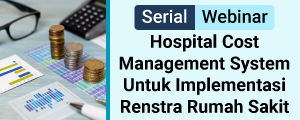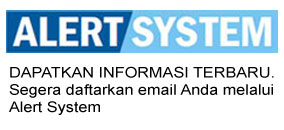 Living in Southeast Volusia County comes with a price — higher hospital taxes.
Living in Southeast Volusia County comes with a price — higher hospital taxes.
“It’s a hefty bite for the people in Southeast Volusia,” said Joe Benedict, chairman of the Southeast Volusia Hospital District’s Board of Commissioners.
The owner of a $115,000 homestead property that falls in the Southeast Volusia Hospital District can expect to shell out $196.95 in hospital taxes. Just over the line in the Halifax Hospital Taxing District, the owner of the same home would pay only $81.25.
But two big changes could be in store for Volusia County’s hospital taxing districts, and either or both could lighten local tax bills.
Bert Fish Medical Center in New Smyrna Beach is looking to partner with a larger hospital system that would reduce the tax burden for Southeast Volusia. Meanwhile, the federal health care law could move the Sunshine State toward universal coverage, eliminating much of the reason why hospital taxing districts were created in the first place.
Gov. Rick Scott has endorsed tapping into $51 billion in federal funds and expanding Medicaid, a state-federal program that helps provide health care to the needy, to cover more than 1 million Floridians. Lawmakers so far have shot down expanding Medicaid, but they are debating alternative proposals that would extend coverage by subsidizing private insurance.
Republican Sen. Joe Negron’s plan would allow the state to still tap into federal funds, but competing proposals would forego federal funds and cover far fewer patients.
Volusia County is unique in that it has three hospital taxing districts, covering the Daytona Beach area, Southeast Volusia and West Volusia. Collectively, Volusia County taxpayers contribute $47.3 million to care for indigent patients and subsidize other health care services.
When the districts were created starting in the 1920s, Florida was still developing, and health care was radically different, said Dominic Calabro, president and CEO of Florida TaxWatch.
Times have changed. Medicare and Medicaid — social programs that helped to extend coverage to the elderly and needy — were created during the 1960s.
If Florida lawmakers were to expand Medicaid, many patients covered through taxpayer-supported patient assistance programs will gain insurance coverage. The health care law calls for 100 percent federal funding for the expansion for the first three years and at least 90 percent thereafter.
If that happens, it raises further questions about the necessity of hospital taxing districts and whether local dollars should be used to subsidize indigent care, said Calabro, who chaired a task force appointed by Gov. Scott to examine the state’s hospital taxing districts.
Sixteen hospital districts in Florida have the authority to levy taxes, according to the task force’s 2011 report.
“It’s like night and day from when these hospital taxing districts were established. They were established for different times and different purposes,” Calabro said. “If they are going to exist (after health care reform), they are going to exist for a very different reason, and they need to have a public reauthorization.”
But even if more people gain coverage, a need still exists for taxpayers to chip in for the community’s health care needs, said Ann Martorano, a spokeswoman for Halifax Health.
Halifax commissioners have steeply reduced the amount they collect in local taxes from about $52 million in 2006 to $15 million in 2012.
Still, Halifax Health, a 678-bed public hospital system, needs some taxpayer support to run the trauma unit and neonatal intensive care unit, services that aren’t moneymakers but provide a community benefit, Martorano said.
Elsewhere, the county’s hospital districts have taken different approaches on taxes.
Southeast Volusia has reduced its taxes in recent years, but is still collecting $15.4 million — nearly double the amount it did a decade ago.
Halifax Health’s larger size and better bond rating allow it to do more with less, which results in lower taxes for people living in its district, Benedict said. Bert Fish Medical Center, the hospital in the Southeast Volusia district, isn’t as well off, he said.
Halifax Health wants to merge with Bert Fish and is promising to cut the hospital tax rate for Southeast Volusia in half in five years.
Naples-based Health Management Associates is also vying to partner with Bert Fish. HMA officials say they would need the same level of tax funding for the next seven years. After that, the hospital would not need tax dollars, which could eliminate hospital taxes entirely, according to its proposal.
The West Volusia Hospital Authority, the only elected hospital taxing board in the county, has raised the amount it collects from $14.1 million in 2006 to $16.5 million in 2012. The money goes to clinics and helps subsidize indigent care at Florida Hospital DeLand and Florida Hospital Fish Memorial in Orange.
Expanding insurance coverage could result in taxes being reduced, said Andy Ferrari, a newly elected member to the hospital authority’s board. Regardless, taxpayers are getting a good bang for their buck because more than 90 percent of the dollars are channeled into meeting the community’s health care needs, he said.
“We are not just covering ER bills,” Ferrari said. “Folks who qualify are receiving primary care, orthopedics, psychiatric care. If they have a true medical need, it’s pretty much covered.”
Hospital taxes
— Sample tax amounts for a homestead property valued at $115,000:
Halifax Hospital: $81.25
Southeast Volusia: $196.95
West Volusia: $160.33
— Sample tax amounts for a business property valued at $250,000:
Halifax Hospital: $312.50
Southeast Volusia: $757.50
West Volusia: $616.65
Source : www.news-journalonline.com








